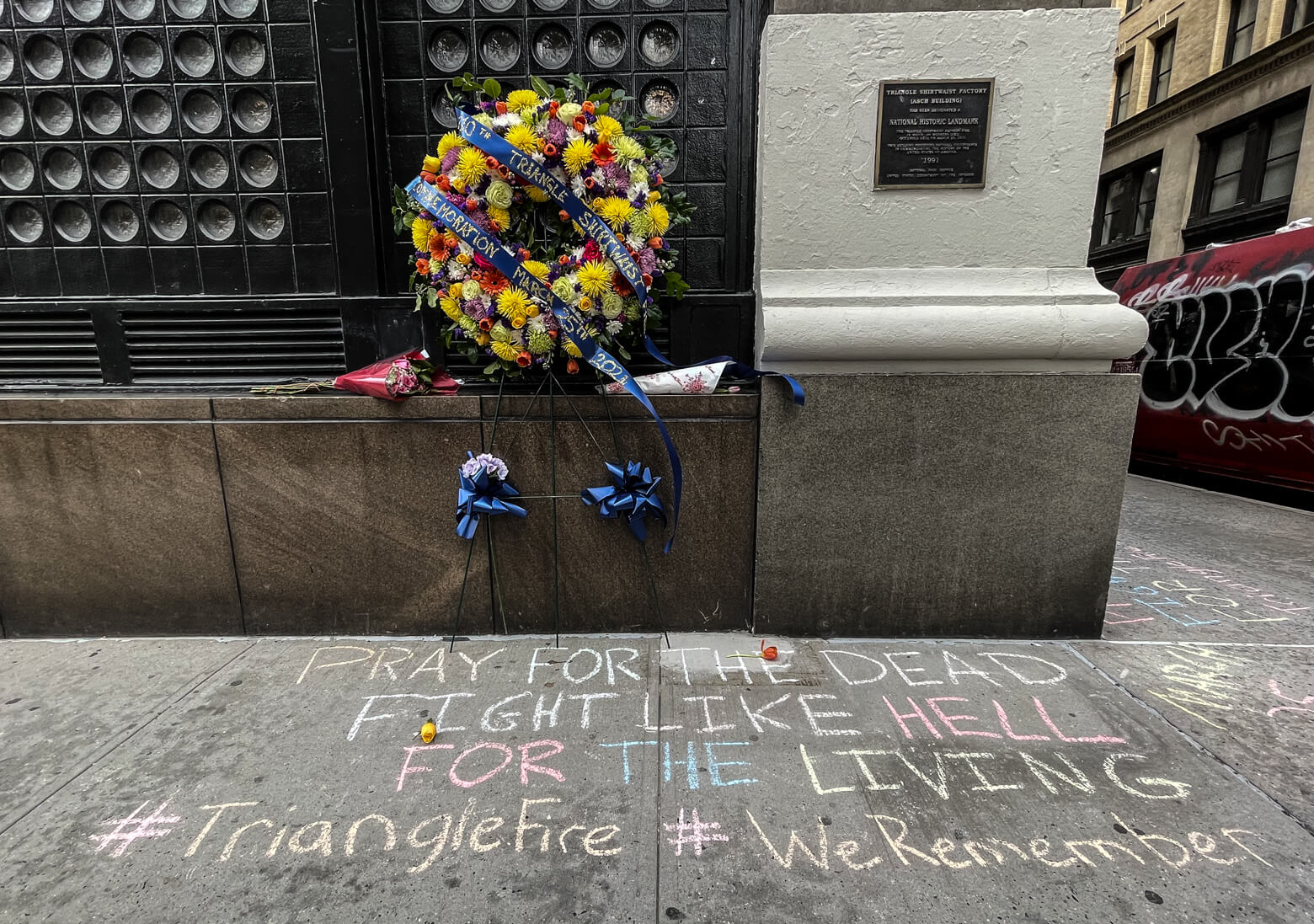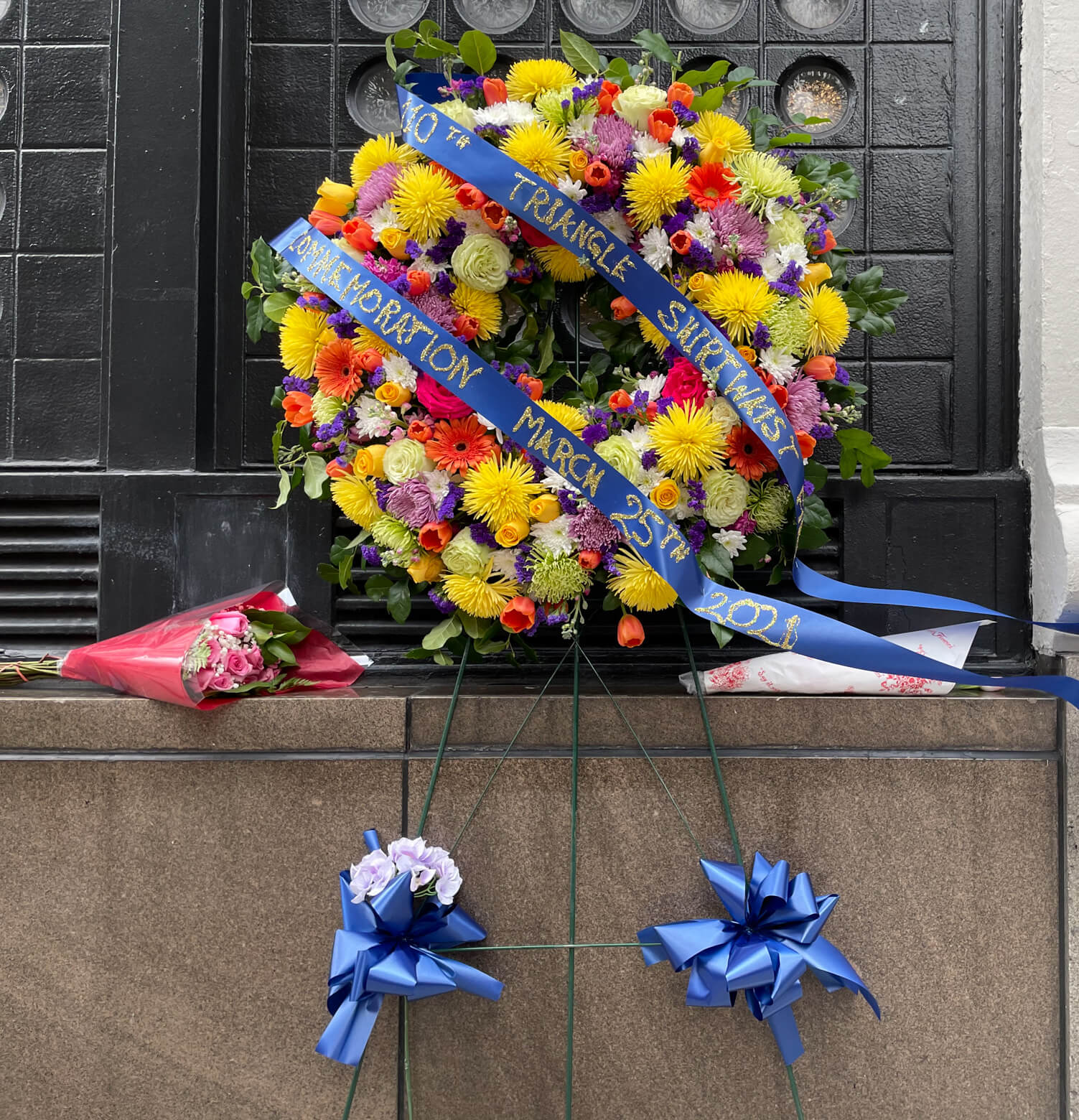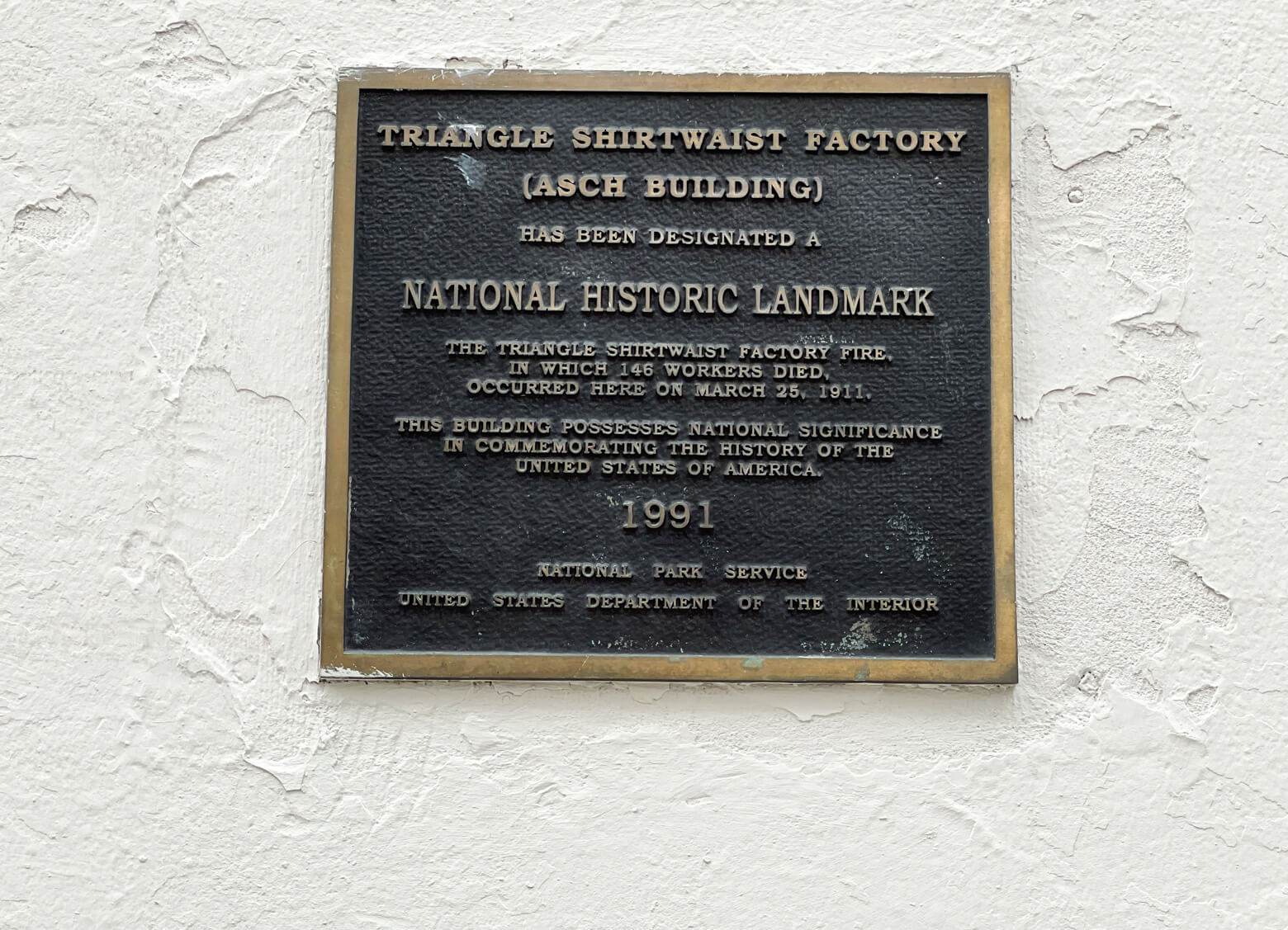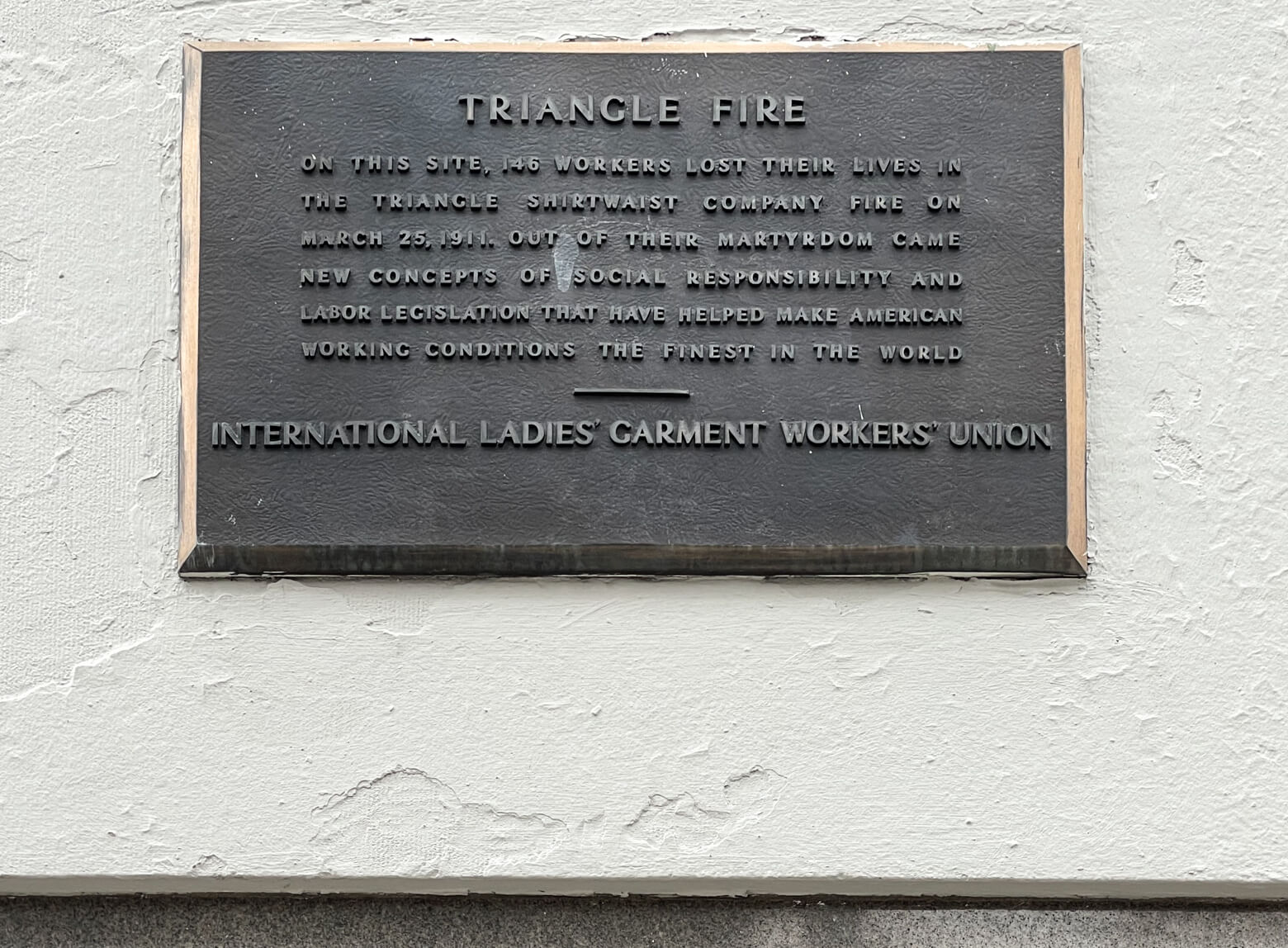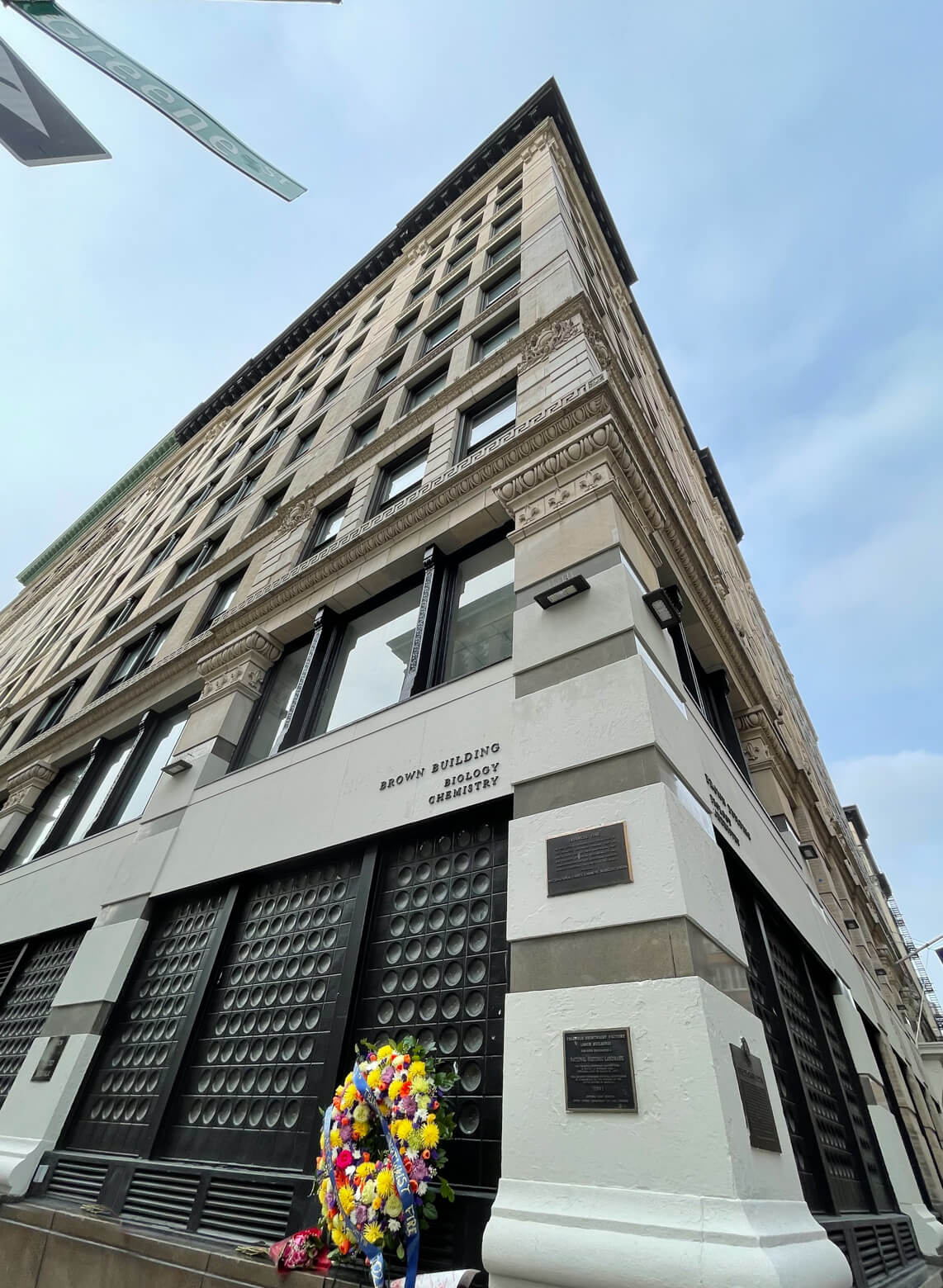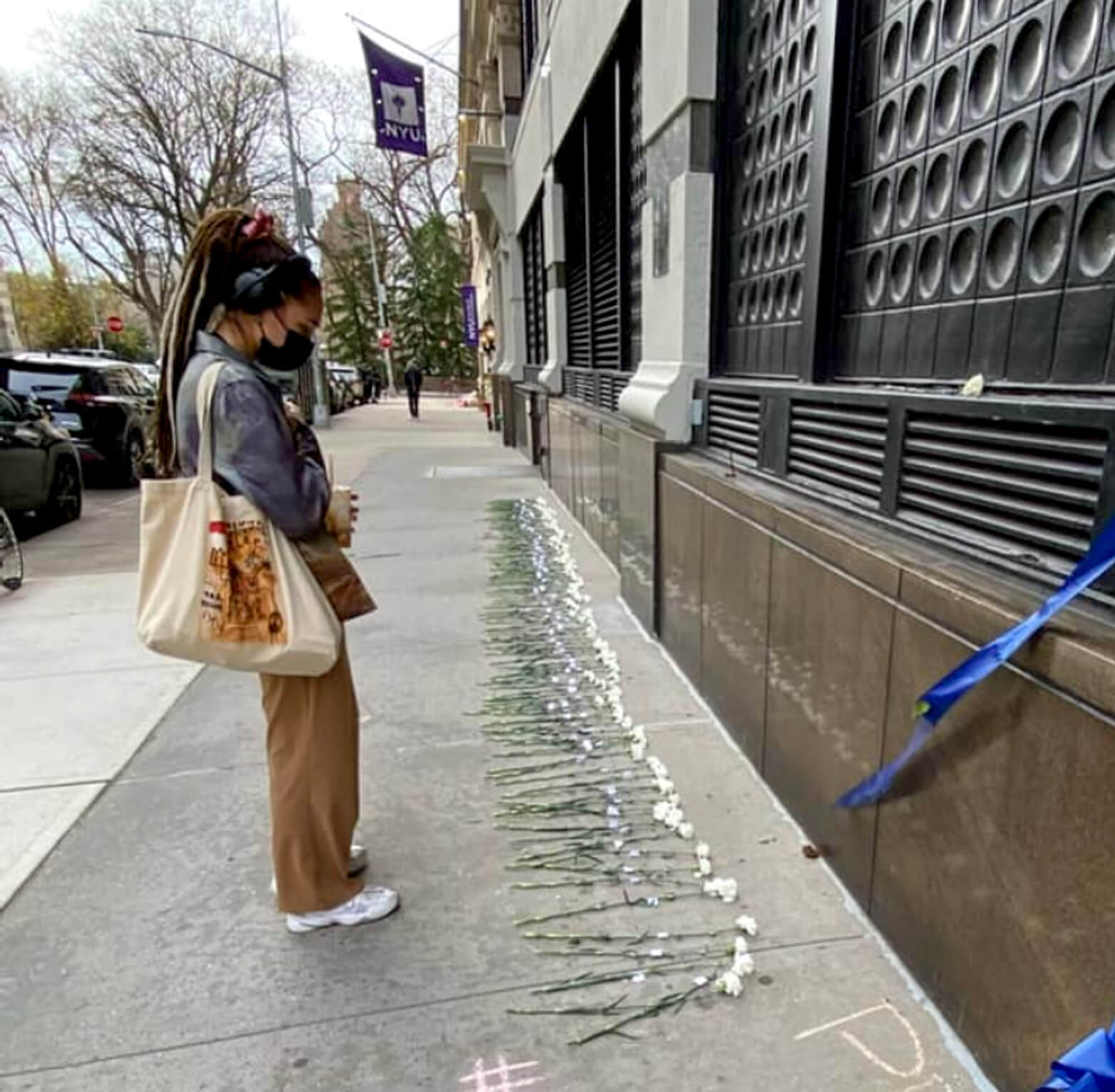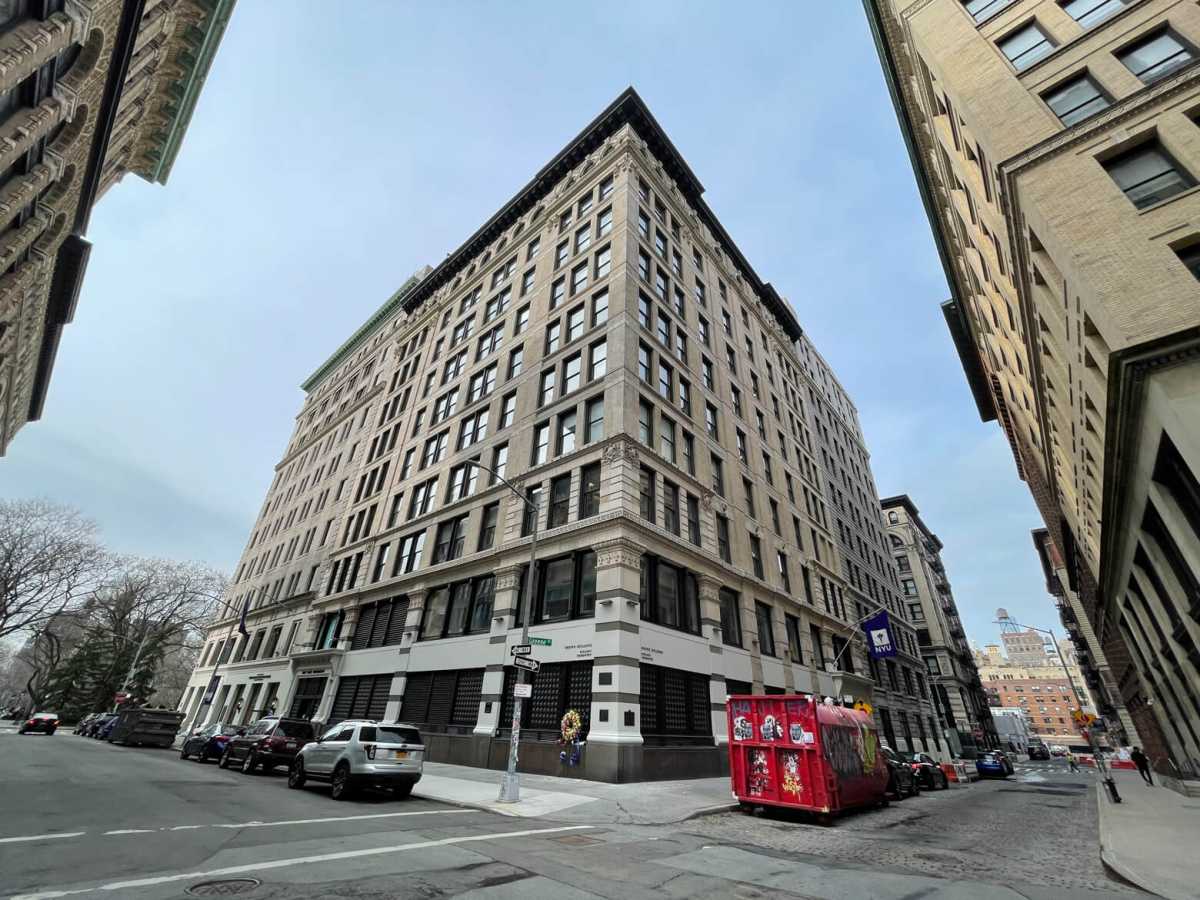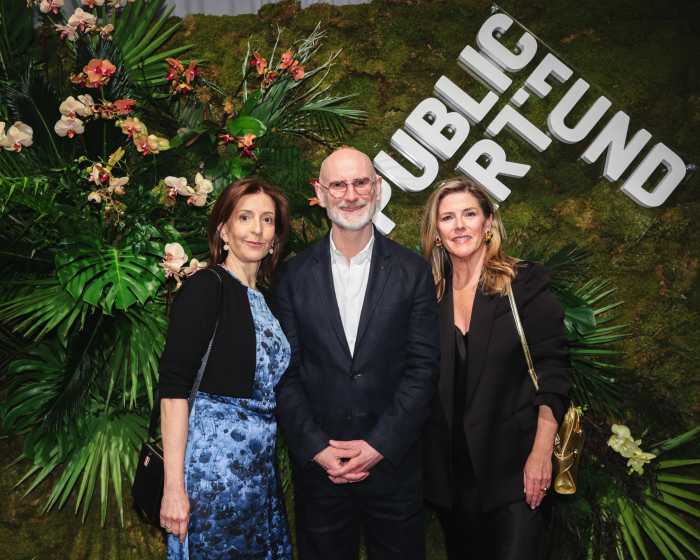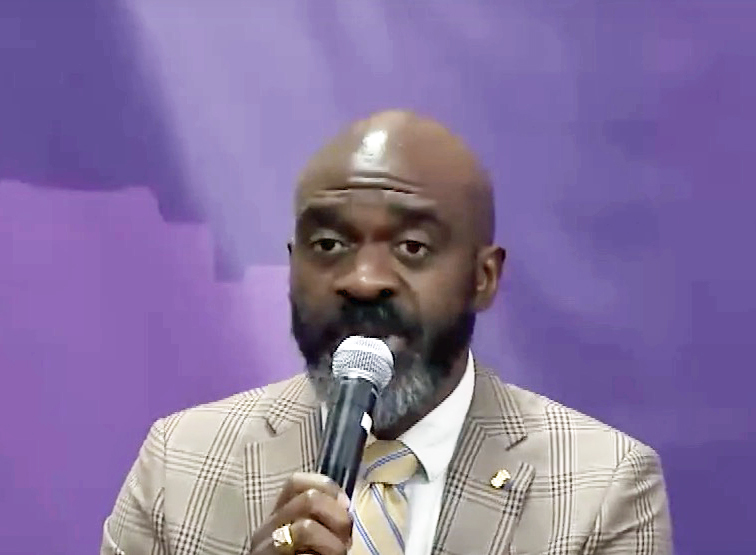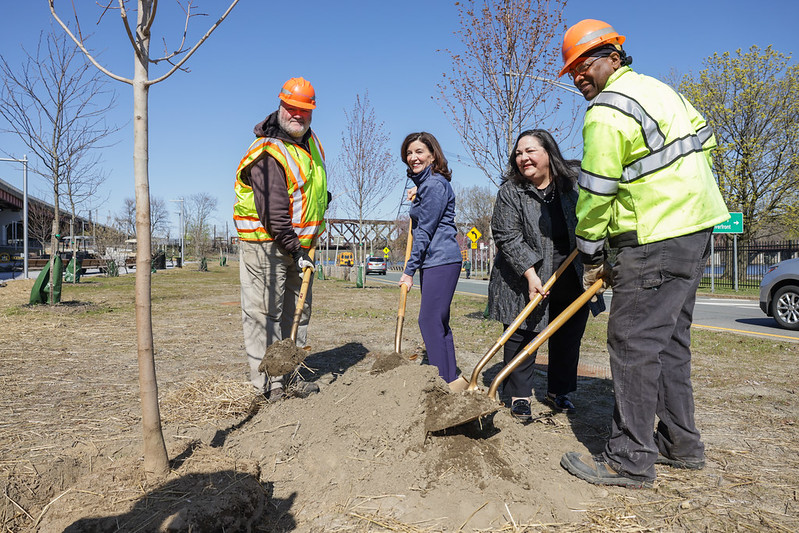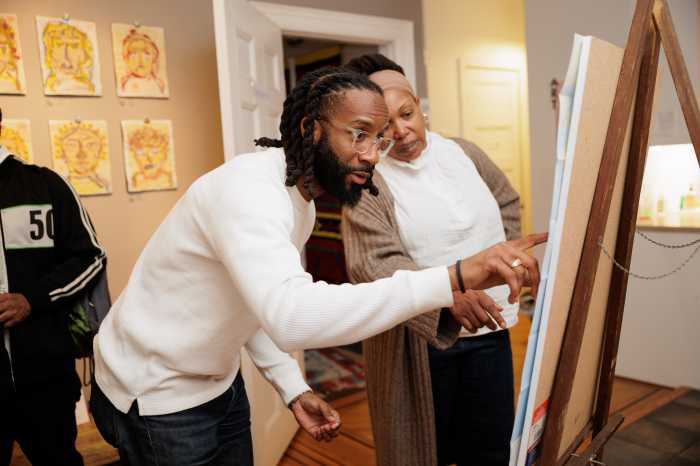At the base of NYU’s Brown Building, the sash on the Triangle Fire remembrance wreath reads: Commemoration March 25, 2021.
It’s the 110th anniversary of the 1911 fire that swept through upper floors of the building, then named the Asch Building, when 146 garment workers mostly young Jewish and Italian women sewing shirtwaists—blouses that looked like shirts— died, the result of that fire.
A chained exit door locked them in on the ninth floor and sealed their fate. The fire escape collapsed and the ladder from the responding fire engine only reached to the 6th floor. To escape the flames, most of the victims jumped to their death; in less than a half-hour, 123 women and 23 men died.
The corner of Washington Place and Greene Street— the actual location of the fire— has for decades been the site both to remember those who died and the subsequent struggles that helped create worker safety mandates. Union members, children from local schools, politicians, labor leaders, workers’ struggle activists and always a fire truck annually fill the intersection in observance.
Even during the women’s rally and march earlier this month, ACLU’s Donna Lieberman began remarks under the Washington Square arch with a focus on the Triangle Fire just blocks away. She connected that tragedy and the COVID loss of too many immigrant loved ones and reminding those present that “the Triangle fire killed women and girls….but the conditions and the refusal of our country to protect workers crossed racial, gender and ethnic lines.”
With on-site observance cancelled due to the Pandemic, this year a wide swath of activists and labor organizations created a virtual remembrance. The Pandemic is no reason not to remember.
To mark the date this year, the Remember the Triangle Fire Coalition organized an hour-long webinar, a screening of a dynamic film by Ruth Sergel (seen at www.rememberthetrianglefire.org) that weaves the past and present to remember the tragic losses and learn about historic (1982 Chinatown workers strike) and current (Amazon fulfillment center, Bessemer, Alabama) labor struggles.
During this virtual commemoration, former union organizer, now with NY State Department of Labor Ed Vargas and Edgar Romney, Secretary/Treasurer, Workers United, welcome the public.
“We shall never forget and we still have a lot of work to do,” says Vargas, referring to the fight for decent wages, good healthcare and safe working conditions for workers. He then quotes Romney: We remember the past, fight like hell for the present and work for the future.
The film flows through archival photos and victim’s portraits, current worker testimonies and remarks from labor leaders and victim family members.
Musical interludes add fuel for the soul: “A Change is Going to Come” (Rachel Perez singing), “Rich Man’s House” (The Resistance Revival Chorus), Crawl in the Promise Land (Roseanne Cash singing) and Solidarity Forever (Elsie Bryant singing).
During the moving eight-minute finale, 146 individuals each present the name and age of one of those who died.
Over 800 viewers tuned-in to the commemoration.
Additionally, one Village resident couldn’t let the significance of the day go unmarked. In an act of solidarity, two days after the actual date, Michael Hirsch, for a second year in a row, left 146 long-stem carnations at the former Asch Building remembering those who died, each flower labeled with the name and age of a victim. “I know how important and meaningful this part of the ceremony is for the families of these people,” he wrote on Facebook.
A proposed memorial is set for this site, the design and all approvals, in place. Construction delays both by structural work on the building and the Pandemic have pushed the completion date to about the end of 2022.
Photos by Tequila MinskyRead more: Read more:
